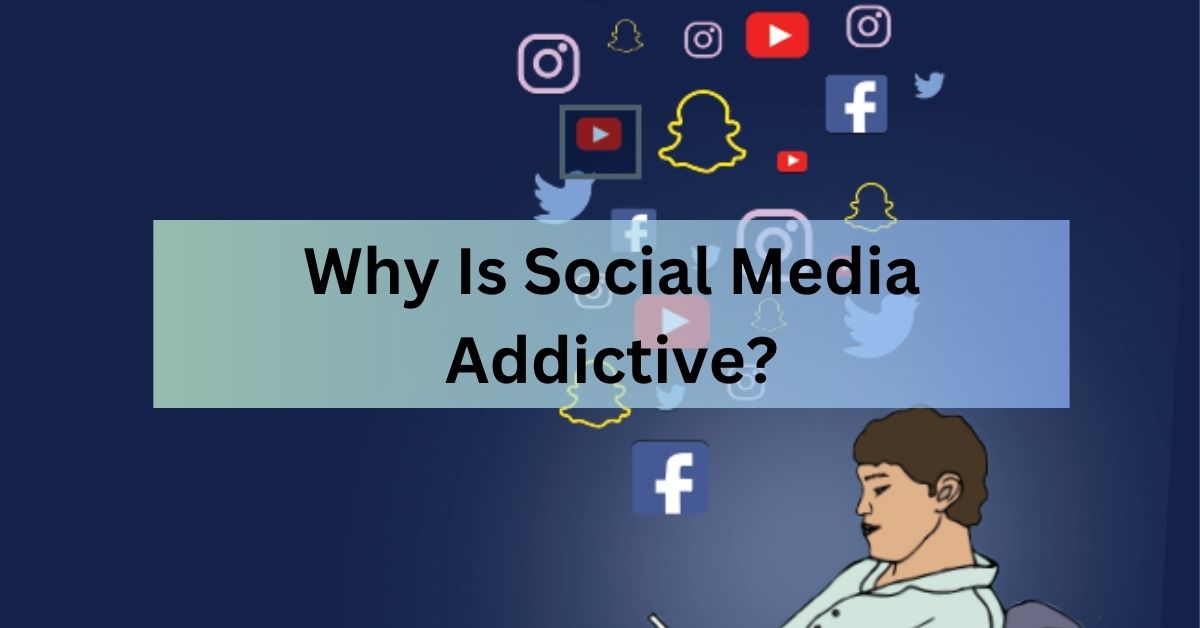Why Is Social Media Addictive? – Everything You Need To Know!
In the digital age, social media has become an inseparable part of our lives, offering an enticing avenue for connecting with others worldwide. But have you ever wondered why it’s so hard to put down your phone or log out of those platforms?
Social media is addictive due to factors like instant gratification, fear of missing out (FOMO), and personalized content. It can have both positive and negative impacts, with potential health issues, trauma, and influence on children’s mindsets.
To manage addiction, set usage limits and engage in offline activities. Treatment is possible through self-awareness, therapy, and professional help.
In this article, we will explore the reasons behind the addictive nature of social media while focusing on the positive impact it can have when used mindfully. Join us as we delve into the science and psychology that make social media an irresistible force of attraction.
Reasons Why Social Media is Addictive – Let’s See!
Instant Gratification:
Social media platforms have mastered the art of immediate gratification, providing likes, comments, and shares that give us an instant dopamine boost. This positive reinforcement encourages us to keep seeking approval and validation from our online peers.
Fear of Missing Out (FOMO):
The fear of missing out is a powerful emotional trigger, and social media excels at playing on this sentiment. Seeing friends and acquaintances living seemingly exciting lives can make us anxious about missing out on memorable experiences, compelling us to stay connected constantly.
Personalized Content:
Algorithms tailored to our preferences ensure that our feeds are filled with content we’re likely to engage with. This personalized experience keeps us scrolling, as each post feels curated specifically for us.
Bad Impact of Social Media on a User:
Health Issues:
While social media brings us closer, it also has a darker side that can affect our mental and physical health. Constant comparison and negative self-perception on social media can lead to heightened anxiety and feelings of inadequacy.
Sleep Disruptions And Trauma:
Excessive screen time, especially before bedtime, can disrupt sleep patterns and affect overall well-being. The anonymity on social media can lead to cyberbullying, causing emotional distress and trauma. The spread of false or harmful information can create panic and trauma within communities.
Changing the Mindset of Children:
Social Pressure: Social media can expose children to unrealistic expectations and influence them to prioritize popularity over genuine connections.
Academic Distractions: Spending excessive time on social media can negatively impact children’s academic performance and focus.
Frequently Asked Questions:
1. How can I manage social media usage to avoid addiction?
Setting time limits and specific usage schedules can help control social media consumption. Engaging in offline activities and hobbies can reduce dependency on digital connections.
2. Can social media addiction be treated?
Yes, social media addiction can be addressed through self-awareness, therapy, and support from loved ones. Seeking professional help from mental health experts can also be beneficial.
Conclusion:
In conclusion, social media’s addictive allure can be attributed to instant gratification, FOMO, and personalized content.
While it offers an incredible platform for connection, it is essential to recognize and mitigate its negative impacts on mental health and children’s mindsets.
By fostering a balanced and mindful approach to social media usage, we can harness its positive potential and build genuine connections that enrich our lives.




